By Solange Santos, Javani Araujo and Abel Packer
One of the operation principles of the SciELO network is the interoperability between national collections operating in a decentralized manner among each other and the products, services, indexes and scientific information repositories on the Web. The other principles are networking itself, as a means for the development and strengthening of national scientific information capabilities and infrastructures; golden route non-embargoed open access, and quality control according to scientific communication quality standards. Interoperability is ensured by the commitment of all collections in adopting the same indexing, full texts structuring, storing and preserving, publishing and disseminating methodological and technological platform. This modus operandi rationalizes and maximizes cooperation and interoperability in the management and operation of collections. The platform is maintained and updated periodically under the leadership of the SciELO Program through the SciELO Brazil Collection. The most important aspect that drives the maintenance and update of the platform is to be in tune with the international state of the art on scientific editing and publishing.
Updates on the methodological and technological SciELO platform are shared between the coordination teams of national collections through email communication, online meetings and courses and classroom trainings due to structural and complex updates. One of these radical platform updates is the adoption of the new XML full text marking system compatible with the ‘ANSI/NISO Z39.96-2012 Journal Article Tag Suite’ (JATS) documented in the ‘SciELO Publishing Schema’ (SciELO PS) that renews all SciELO operating functions (indexing, storage, preservation, publication and dissemination of documents and journals) that affects all actors of the SciELO Network. This update motivated the classroom course on SciELO Methodology promoted and organized by the Coordination of the SciELO Program, on June 6-10, 2016 at the institution’s headquarters in São Paulo.
The event opening was made by Abel Packer, director of the SciELO Program, which emphasized the need for constant improvement in the management of SciELO collections, journal editing and publishing. Packer also noted that progress in text structuring of articles is an integral part of the implementation of the SciELO priority lines of action on professionalization and internationalization, which results in the development of national capacities to produce and publish journals according to the international state of the art.
The adoption of XML full text production and publication model is an essential step forward and a significant change affecting the traditional editing and publishing systems of scientific journals. Major changes like this one constitute a challenge both for the SciELO network coordinators that must update and redefine their procedures and processes, as for the journals, which are usually produced under limited financial and professional conditions, as well as their limited capacity to adopt innovations.
Given these needs, the course program, which included theoretical and practical sessions, was mainly focused on updates regarding editing procedures and publishing processes based on the specification of the ‘SciELO Publishing Schema 1.4’ (SciELO PS), which is based on ‘NISO JATS Journal Publishing DTD’ version 1.0, and also the SciELO Style (SciELO PS), which are the rules that customize the aspects of JATS specification.
The management and operation of publishing services with XML structured texts, according to SciELO PS, allows detailed and accurate identification of the articles’ bibliographic elements, which contributed to improving the bibliographic quality of the texts, indexing and interoperability on the Web, digital preservation and the possibility of publication in different formats and presentation in different devices.
The course, aimed to coordinators and technical teams of Spanish speaking SciELO Network countries, had 16 participants, representing the following countries: Argentina, Bolivia, Colombia, Cuba, Mexico, Paraguay, Spain and Uruguay.
One of the commitments of the SciELO Program towards the Network regarding the common operation platform is to promote the systematic articulation of coordinators and technical teams for the adoption of updated standard procedures, which are formalized through guides, reference manuals and software applications, for the assessment criteria to be clear and applicable throughout the network.
The development of SciELO Network is a joint effort, however, focused on national capabilities and priorities. Therefore, its operation is totally decentralized, following common principles, methodologies and technologies, which is a key feature of its sustainable development over 18 years of regular operation in 15 countries, where most collections are considered an integral part of the national research and education infrastructure and the national scholarly information policy.
Program and presentations of the course – http://eventos.scielo.org/taller2016/programa/
References
PACKER, A., et al. Why XML?. SciELO in Perspective. [viewed 23 June 2016]. Available from: http://blog.scielo.org/en/2014/04/04/why-xml/
PACKER, A. The SciELO Network publishes more than 500,000 articles in open access during its 17 years of operation. SciELO in Perspective. [viewed 23 June 2016]. Available from: http://blog.scielo.org/en/2015/02/06/the-scielo-network-publishes-more-than-500000-articles-in-open-access-during-its-17-years-of-operation/
PACKER, A.L., et al., orgs. SciELO – 15 Years of Open Access: an analytic study of Open Access and scholarly communication. Paris: UNESCO, 2014. ISBN 978-92-3001-237-3. Available from: http://dx.doi.org/10.7476/9789230012373.
SciELO Publishing Schema – Guia de uso dos elementos e atributos para documentos em XML. SciELO. Available from: http://docs.scielo.org/projects/scielo-publishing-schema
External links
XML – <http://en.wikipedia.org/wiki/XML>
Translated from the original in Portuguese by Lilian Nassi-Calò.
Como citar este post [ISO 690/2010]:




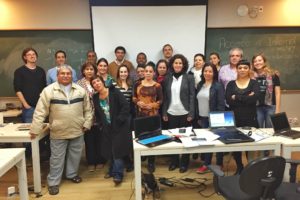
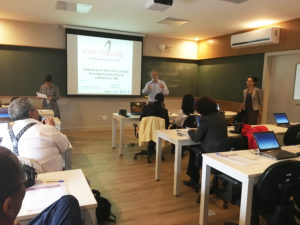
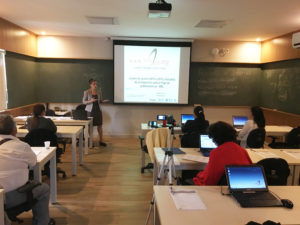


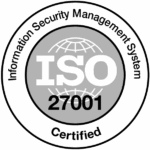

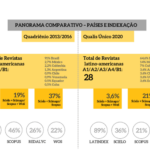








Read the comment in spanish, by Javier Santovenia:
http://blog.scielo.org/es/2016/07/04/curso-internacional-actualizo-profesionales-de-la-red-scielo-en-la-nueva-version-de-la-plataforma-metodologica/#comment-39344